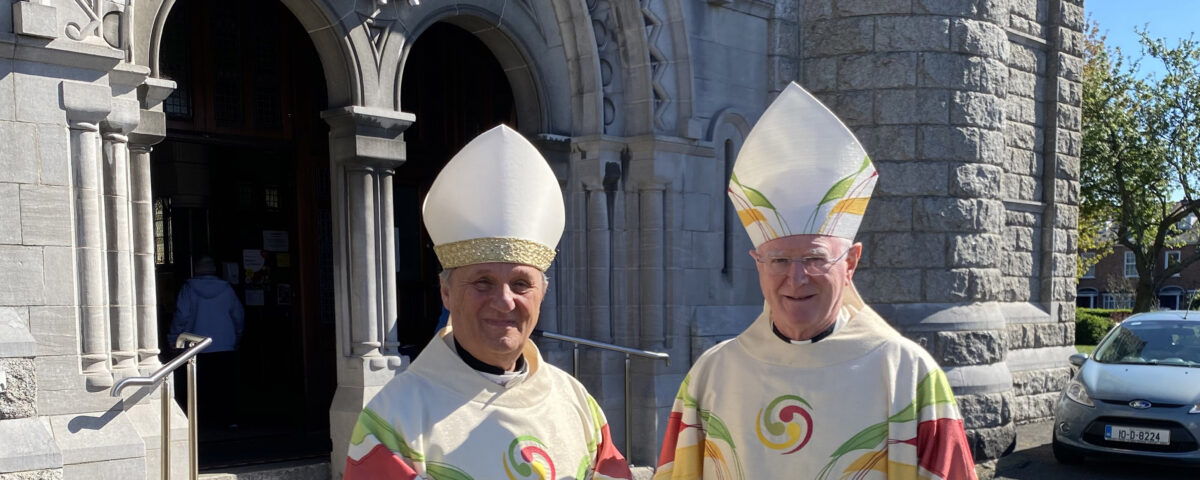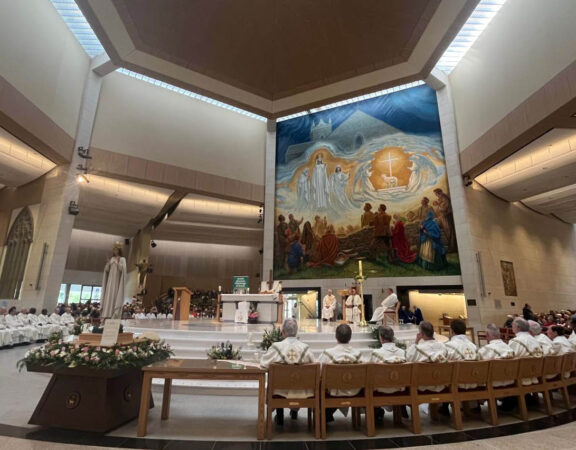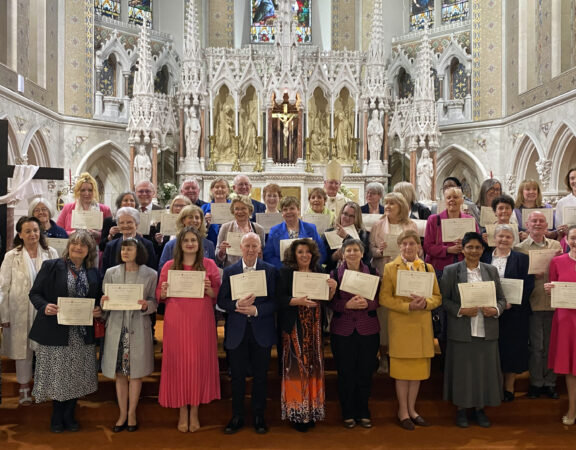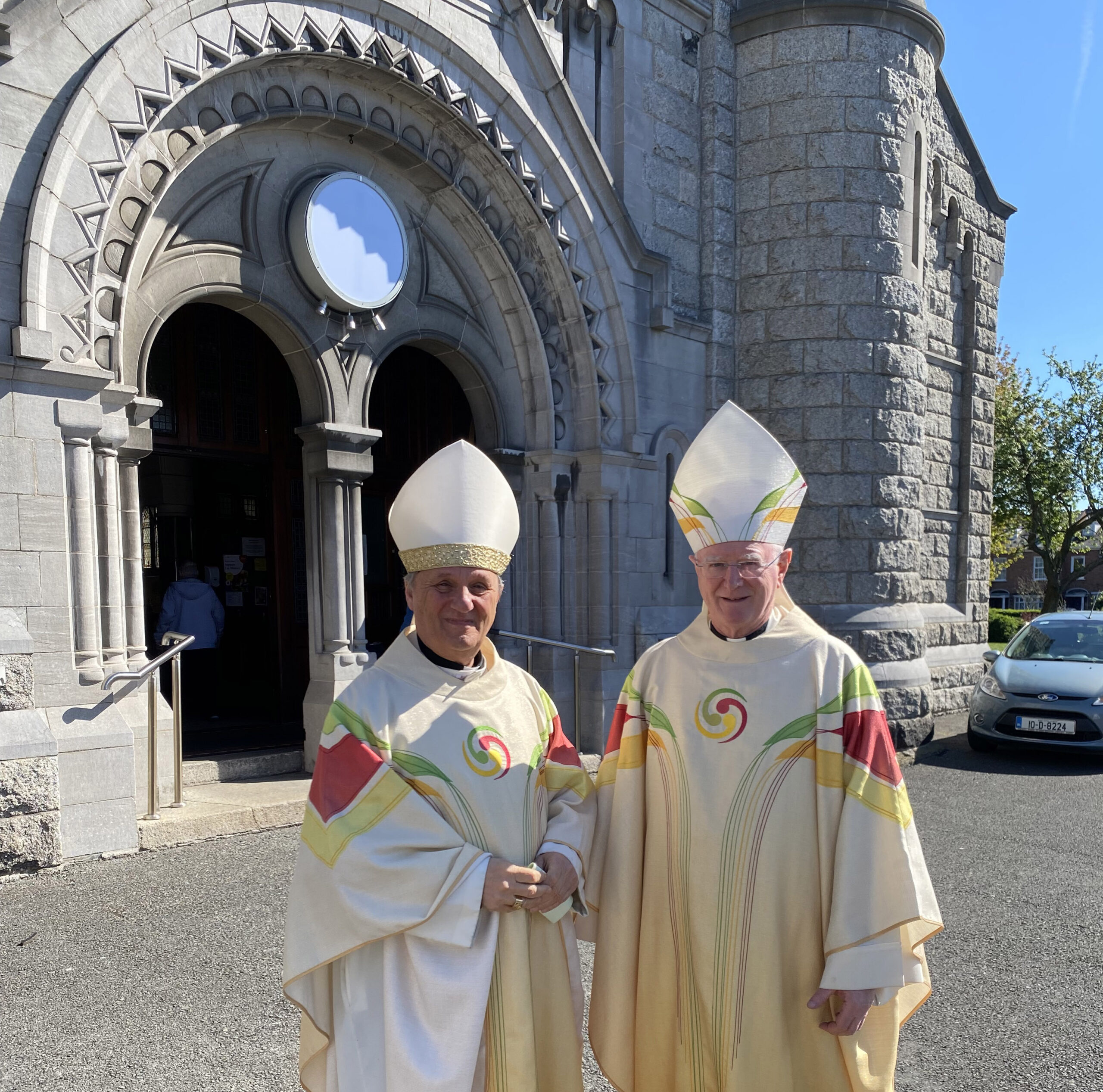
St Columba’s Church, Iona Road, Dublin
Homily of Cardinal Mario Grech
Sunday, April 21, 2024
Dostoyevsky has a very beautiful and well-known phrase in his novel The Idiot: ‘beauty will save the world’. According to this author, it’s not justice or God who will save the world, but beauty. Salvation does not depend on ethics, on what is good and what is bad, but on aesthetics: the beautiful. It is beauty that saves the world. It is the aesthetics of salvation.
Why have I chosen to talk to you this morning about Dostoyevsky and his phrase? Because this same message is found in this Sunday’s Gospel: the Gospel that speaks of Christ as the good shepherd. He is ‘the good shepherd, the true shepherd, who lays down his life for his sheep’. Jesus makes the comparison between the good shepherd and the hired man. In the moment of trial, when the wolf approaches, the two men act in very different ways. The hired man escapes and tries to save his life, while the good shepherd gives his life for his sheep. It’s a really moving passage, but I don’t think we fully appreciate its depth. When we look at the Greek text, the shepherd is defined as the kalos. This word does not simply mean good, it also means beautiful. The shepherd, who is defined as kalos, not only has goodness, but also beauty. Jesus is the beautiful shepherd.
The true power of this gospel is only revealed if we make an aesthetic, rather than moral, reading of this passage. What distinguishes the beautiful shepherd from the hired man is not righteousness but beauty. Ultimately, if the hired man escapes from the wolf, he is doing nothing wrong, he is saving his life. A man’s life is more important than the life of a sheep. The beautiful shepherd gives his life for his sheep. He doesn’t have to do that, it is not his job. He is not more righteous because of his choice. His job is to look after the flock, not to die for it. Yet he goes beyond this – he knows his sheep, he lays down his life for them. Why does he do it? There is no rational explanation for his choice.
In his Critique of Judgement, Kant defines beauty as that which is without interests. It is not there to gratify a need or to fulfil a moral imperative. To a certain extent, beauty is that which is without a why, without a reason. Beauty is that which cannot be explained rationally. Beauty is that which cannot be explained in terms of practicality. Normally, the most beautiful things are the least practical and the least efficient one. Yet, we need beauty, even if we don’t know why. Life is so much better when it is surrounded by beauty, even if we don’t know why.
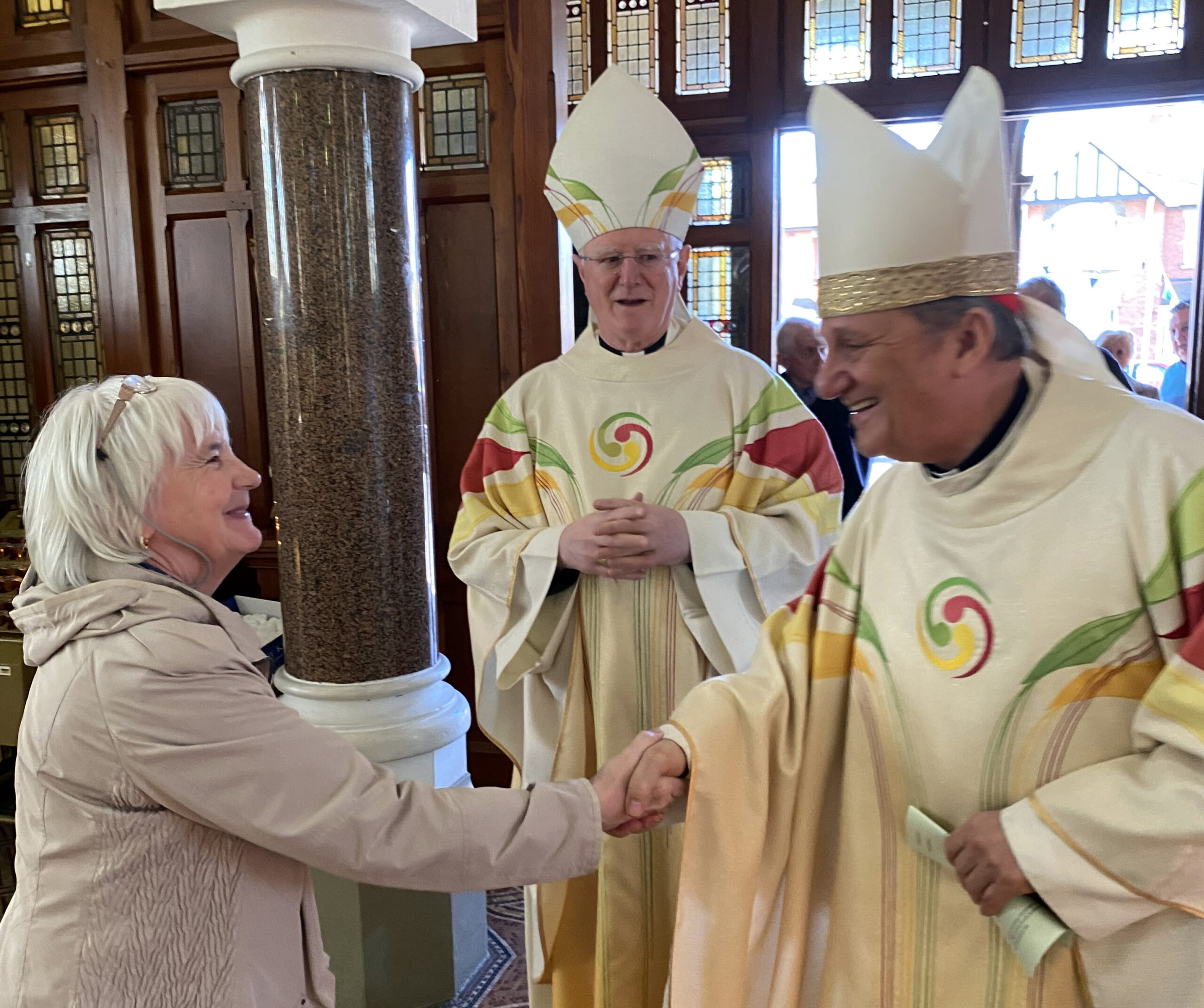
This same aspect of inexplicability, lack of a purpose, can be found in the gospel, precisely in the shepherd’s decision to give up his life for that of his sheep. Like beauty, it is inexplicable. And although, we don’t know how to explain this, we do have another, equally unexplainable, word for this: love. The shepherd gives his love out of love, but like beauty, love is inexplicable. Why do I love someone and not someone else? Often there is no reason. Really, love is beautiful.
This Gospel presents us with the foundation of our faith. The Christian faith is not an ethic but an aesthetic. We are not Christians simply because being a Christian means living a morally better life: there are many saints living outside the Church. We are Christians because we are struck, we are attracted, by the beauty of someone – Jesus Christ. He is the one who gave his life for us. He didn’t have to do it, but he did it. That’s the beauty of Christ – he gave his life to love us. And we are attracted by this love, by the beauty of this gesture. We are spectators of this unexpected, gratuitous gesture that attracts us.
This Sunday, the Church celebrates Vocations Day. The word vocation comes from the Latin, vocare, to be called by someone. Interestingly, in Greek, the work Kalos is related to the verb Kalein, to call. We are called by Christ to follow him, or better still, we are attracted by the beauty of Christ to follow him. Often, because of habit or because of difficulties, our Christian life becomes dry, it loses its charm. Often our life is governed simply by ethical reasoning. I remain faithful to my vocation simply because it’s expected of me, because it is right. This is already something to be lauded, but I think that the Gospel today urges us to go further, to rekindle the beauty of our Christian life, the beauty of following Christ. Why are we Christians? Just like beauty, we don’t know why. Yet, in the same way that beauty attracts, so does the love of God. It steals our hearts.
And this same aesthetic should also determine our lives in the Church. I think that aesthetics should mark the synodal process that we are going through. I might sound as a dreamer, or an idealist, but I think that a synodal Church has to prioritise aesthetics. I’m going beyond simply suggesting that we need to have beautiful liturgies and publications. As I said earlier, beauty guarantees neither efficiency nor efficacity. Yet we prefer the beautiful over the ordinary. There is something that is lacking when beauty is absent. The same with the Church. Synodality is neither efficacious nor efficient, yet, like beauty there is something that is missing, whenever synodality is missing. The Church might be more efficient, clearer without synodality, but it will also be less alive. That is what beauty gives. Why do we need beauty, why do we need synodality? We will never get a straight answer, but we know that, as hard as it might be, it’s always better this way.
On a Christian funerary monument from the second century, there is the following sentence: I am the disciple of a holy shepherd with big eyes, his gaze reaches everyone. I think that each of us can add: I am the disciple of a beautiful shepherd who has big eyes; his gaze reaches everyone. May the gaze of this beautiful shepherd help me today to rediscover the beauty of my Christian life. May the gaze of this beautiful shepherd help the Church rediscover the beauty of being a church. It is the beauty of this shepherd that will save the world. It is the beauty of this shepherd that will save the Church. It is the beauty of this shepherd that will save me. Amen.







